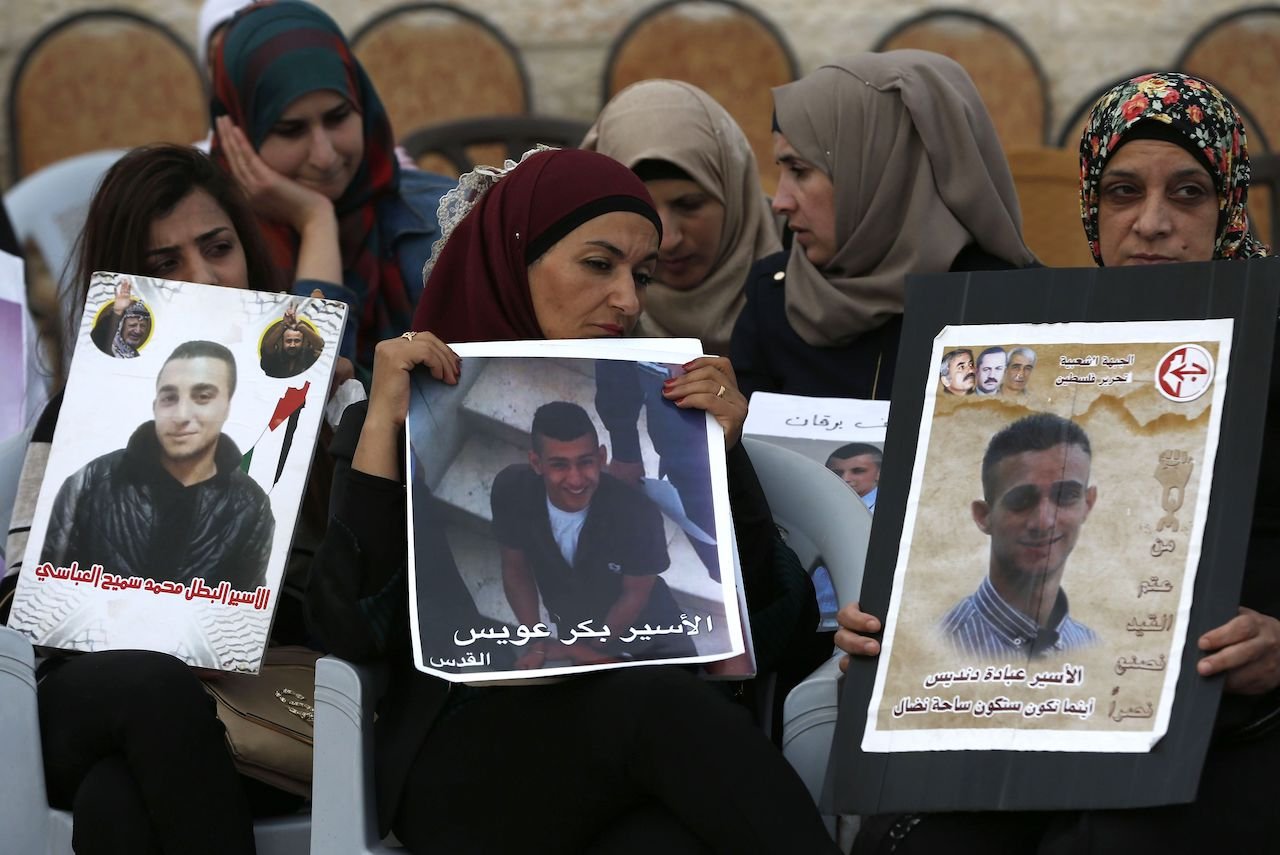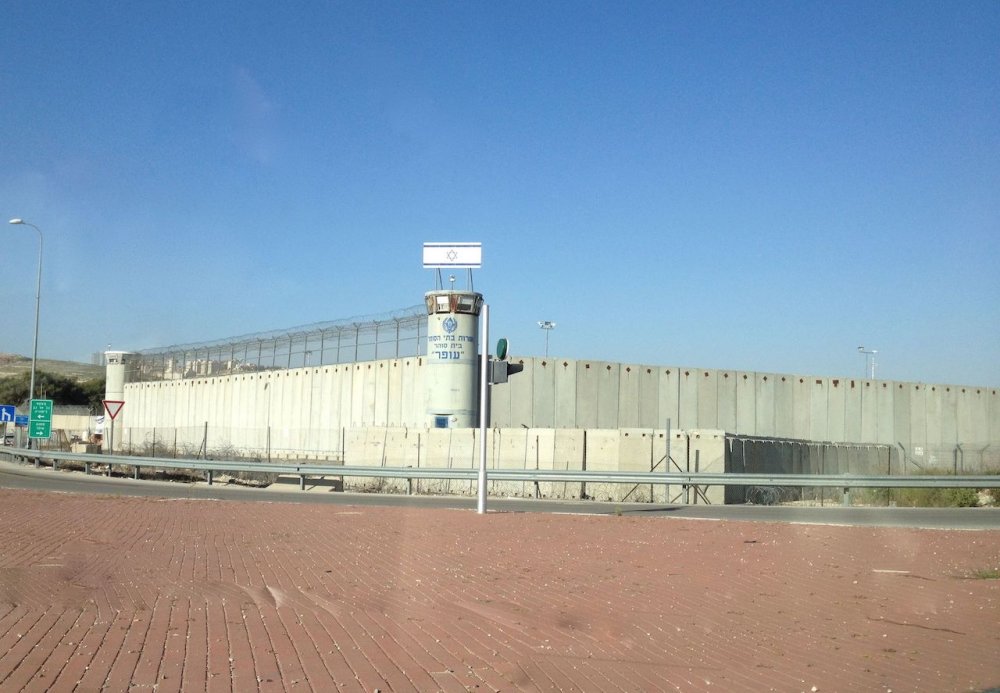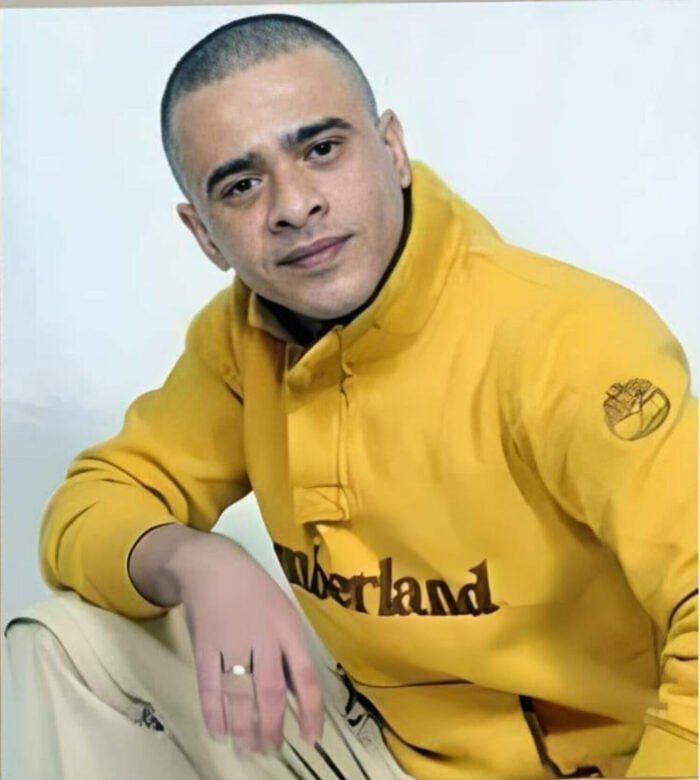Unlike Palestinians in the West Bank who are subject to Israeli military law, Palestinians carrying Israeli permanent-resident IDs are subject to Israeli civil law as a result of Israel’s unilateral annexation of East Jerusalem. Under civil law, individuals accused of “security offenses” may be detained for four days before seeing a judge, denied access to legal counsel for up to 21 days, and held in custody without charge for up to 64 days. When Palestinians with Israeli permanent-resident IDs are alleged to have committed crimes in the rest of the West Bank, however, Israeli military law applies. Moreover, Israeli prosecutors often bend the law to utilize this loophole and place them under administrative detention.16 Administrative detention can be repeatedly renewed and has far fewer legal protections.
Since the war on Gaza began, however, Israel passed emergency regulations extending the period that any Palestinian detainee can be denied access to a lawyer. As of October 24, even Palestinian citizens of Israel and Palestinians holding Israeli permanent-resident IDs can now be detained for up to 30 days (instead of 10) without seeing a lawyer, and a judge can extend this period for up to 90 days (instead of 21).17
One example of the harsh penalties imposed lately by Israel’s courts on Palestinian Jerusalem residents was the November 12 sentencing of 16-year-old Nofuth Hammad of Sheikh Jarrah to 12 years in prison, a fine of NIS 50,000 (around $13,000) compensation for the victim, and three years’ probation. Hammad, a tenth grader at the time, was arrested in 2021 from her high school in East Jerusalem and charged with attempted murder of an Israeli settler.18
She is the youngest Palestinian female prisoner currently held in Israeli prisons.19
Another severe consequence meted out to Palestinian detainees with Israeli permanent-resident IDs is the revocation of their legal status and right to reside in Israel. For example, Jerusalemite Ahmed Attoun was stripped of his residency in 2018 for running in the 2006 Palestinian parliamentary elections as part of the Hamas-affiliated list (see “Deported for Not “Showing Loyalty”: The Case of Four Jerusalem Officials Whose Residency Was Revoked after a 12-Year Legal Battle”). But 25 different arrests, 17 years in detention, and expulsion from his native city to Bethlehem was not enough for Israel. In May 2023, shortly after his most recent release at the age of 55, Israeli forces again raided Attoun’s home in Bethlehem to detain him, treating him so roughly that he had to be transferred to a medical facility where his family was prevented from seeing him.20
A few days later, he was sentenced to yet another four months of administrative detention.21
On February 15, 2023, the Israeli Knesset passed a law permitting the minister of interior to expel from East Jerusalem or Israel Palestinian prisoners who receive a stipend from the Palestinian Authority (PA). Palestinians consider these payments, made to prisoners and/or their families through the PA’s Martyrs Fund,22 as financial support for those who have sacrificed for the nation and for enduring the economic hardships of life under occupation; the funds serve as a vital lifeline for missing breadwinners.23
In June 2023, Israeli authorities raided the homes of 16 prisoners from Jerusalem and confiscated items on the basis that the families had received support payments from the PA.24 The police claimed that they confiscated NIS 270,000 in cash and gold (about $72,000) and seven vehicles and a motorcycle, while freezing 16 bank accounts.
The Israeli interior ministry announced on November 17 that it was stripping two more Palestinian Jerusalemites of their permanent-resident status: Rashid al-Rishq and Majed al-Jubeh.25 Al-Jubeh, from Jerusalem’s Old City, has been detained numerous times, banned from visiting the West Bank, and banned from meeting with Jerusalem political figures.26
In October, he was again put in administrative detention.27
Even after Palestinians are released from detention, they can be subjected to repeated harassment. Silwanic reported that a number of released detainees in Jerusalem were visited by Israeli police in November who levied municipal and other fines against them that were unrelated to their detentions.28 Special forces, municipal inspectors, and tax authorities participated in a joint raid on the family home of released prisoner Saif al-Natsheh. Fines of more than NIS 10,000 (about $2,500) were issued for minor building violations, water leakage from a hose, an untidy garden, and the improper or illegal registration of a vehicle.




